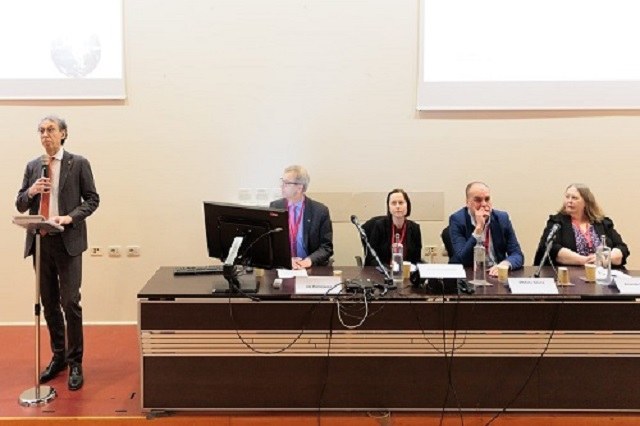The General Assembly, hosted by the University of Bologna from 27 to 29 November, began today. This three-day event fosters intense dialogue with leading figures—both academic and non-academic—in the higher education sector, focusing on the role of university alliances and their impact on national, European, and global strategies for internationalization.
Rector Giovanni Molari extended his welcome to the rectors, colleagues, and students from the universities that, together with the University of Bologna, form Una Europa—a network uniting eleven of Europe’s most prestigious institutions.
The University of Bologna, the oldest university in the Western world, continues to look to the future with a vision rooted in innovation. Its participation in Una Europa is a testament to this commitment. The Alliance exemplifies the value of cooperation that transcends national borders, shaping the future of education, research, and social engagement.
Today’s challenges are many—climate change, digital transition, the energy crisis, social inequalities, and ongoing conflicts in Europe and the Middle East. “To address them, it is essential for academic institutions to take on a leadership role and collaborate intensively,” the Rector emphasized.
Another pressing issue is the reduction in government funding for academia. In this context, inter-university cooperation becomes crucial. “Together, we must reaffirm the importance of academic institutions—both nationally and globally—and highlight the pivotal role of inter-institutional relationships in the international landscape,” Molari stated, referencing a recent speech by Mario Draghi on the topic.
Una Europa has the potential to play a leading role in this endeavour. “Together we make significant progress in interdisciplinary educational innovation, joint research, and mobility programmes, fostering a continuous exchange of ideas and inspiration,” the Rector concluded.
Rector Giovanni Molari’s speech


